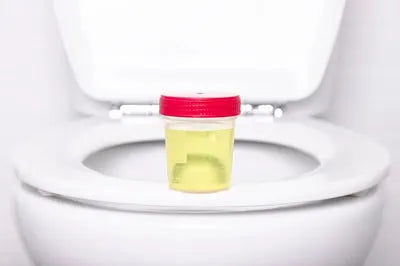We recently found that one of our house-keeping staff in the office has been suffering from stress urinary incontinence since her last pregnancy a few months back. With a little help from us and a few tips and tricks she has been able to overcome it completely! Here’s what she has to say about it:
“I struggled with urine leakage problems after my first child. Then it stopped without me doing anything. It started again after my second child. I have to travel for one hour in the train every day. A little acchhoo and gone! Thank you to madam here. Gave me really good advice and taught me exercises. Urine leakage problem was solved in 4 months!”
That’s how a success story is written! Urinary incontinence refers to the loss of bladder control, which can vary from slight dribbling of urine when sneezing or coughing to a complete inability to control urination. It is a common and often embarrassing condition that affects men and women of all ages.
There are certain lifestyle changes that can help reduce these symptoms, or even make urinary incontinence a thing of the past! Keep reading to find out what they are!
What causes urinary incontinence?
First, let’s go over the basics once. We already know what urinary incontinence is. It can either be temporary due to simple causes, or persistent due to some underlying health conditions or bodily changes.
The temporary causes of urinary incontinence can include:
-
Drinking alcohol
-
Extreme stress or anxiety
-
Consumption of bladder irritants, such as coffee and carbonated drinks
-
Constipation
-
Urinary tract infections
In the long run, urinary incontinence can be an indicator or symptom of underlying health conditions or changes such as:
-
Prostate cancer or enlarged prostate
-
Pregnancy
-
Childbirth
-
Menopause
-
Neurological disorders
-
Obesity
-
Tumour or urinary stones
What can you do to control urinary incontinence?
If urinary incontinence is left unmanaged, it can increase your risk of repeated urinary tract infections and skin problems, including rashes, skin infections and sores. Worse of all, incontinence can negatively affect your social, work, and personal relationships. However, these five lifestyle changes can help you easily control your condition.
1. Steer clear of sugary foods, carbonated drinks, and caffeine
We all know the health complications sugary foods and drinks can lead to, and now you can add another to the list.
The foam and fizz in carbonated drinks can irritate your bladder and increase urine production and bladder sensitivity. This can worsen the situation for people who are already suffering from urinary incontinence.
Now, we understand coffee might be a necessity in this fast-paced world, but caffeine can have the same effect as carbonated drinks. So, it’s best to limit its consumption or avoid it entirely.
2. Quit alcohol consumption and smoking
In addition to making you feel sick, nauseous and dizzy alcohol can also increase acidity levels in your body, which can worsen urinary incontinence.
If people who are already suffering with bladder control issues drink too much alcohol, they can lose command over their bladder and wet themselves.
It’s worth noting that sugary foods and drinks, carbonated drinks, caffeine, and alcohol, are all acidic foods. See the connection between acidic foods and incontinence?
Now, smoking isn’t too far behind in terms of health complications it can lead to. It irritates your bladder and worsens urinary incontinence. Smoking can also cause chronic coughing, which can weaken the pelvic floor muscles that support the bladder, resulting in leaking urine every time you cough or sneeze.
3. Adopt an alkaline rich diet
Read as: Add more fruits and vegetables to your diet. Alkaline foods belong to the opposite category of acidic foods and help cleanse the urinary system. This can significantly decrease the risk of developing any complications related to urinary incontinence.
Additionally, when the acidity level rises in your body, it tries to balance it out by using minerals such as calcium, phosphorus, and magnesium. And where does your body acquire these minerals from? Your organs! As a result, the immunity system of your body takes a great hit. Alkaline foods can help balance the acidity levels in your body without stealing organs of vital minerals and helping support a healthier immune system.
4. Eat more fibre and drink more water
Eating fibre-rich foods such as apples, black beans, and orange can promote regular and healthy bowel movements, which can help reduce the strain on the bladder caused by constipation and improve the symptoms of urinary incontinence.
Now why would we ask you to drink more water!? MORE WATER!? Well, while it’s easy to assume that drinking more water can worsen urinary incontinence, limiting fluid intake can create a lot more problems to you by irritating your bladder, increasing the acidity of your urine, and even decreasing your bladder’s capacity in the long run. On the other hand, sufficient hydration can dilute your urine and keep your urinary system healthy, potentially reducing your episodes of urinary incontinence.
5. Exercise!
Pelvic floor exercises are an extremely important part of urinary incontinence management. If you experience bladder leakage every time you cough or lift something heavy, you might think exercises are out of the list for you; you are partially right. High-impact exercises that put pressure on your pelvic floor muscles can worse your condition.
However, there are other exercises, such as core strengthening exercises, that can improve your condition. Try bridge pose, planks, and dead bug for starters.
And saving the best for last—Kegel exercises. These exercises specifically target and strengthen the pelvic floor muscles, yielding the most favourable outcomes compared to other exercises. No urinary incontinence treatment is complete without Kegels; such is their effectiveness.
We hope this blog helped you learn something new today. Don't let something like incontinence take away the joy from your life and make you hover around bathrooms and skip comedy movies. Live your life to the fullest and embrace happiness with the right understanding of incontinence and the best protection against it. When it comes to having your back against incontinence, Friends Adult Diapers are your trusted companion, India’s No. 1Adult Diaper Brand.
That’s it from us, now it’s up to you to work towards your best life.
FAQs:
1. Can exercise help with stress incontinence?
Yes, exercise can be beneficial for managing stress incontinence. Specifically, stress incontinence exercises that target and strengthen the pelvic floor muscles, such as Kegels, can help improve the symptoms of stress incontinence. Strengthening these muscles provides better support to the bladder and urethra, leading to better control over urinary leakage during activities that put pressure on the bladder, such as coughing, sneezing, or lifting heavy objects.
2. Does losing weight help with stress incontinence?
Losing weight can potentially help with stress incontinence, especially if excess weight contributes to the condition. When there is extra weight, increased pressure is exerted on the bladder and pelvic floor muscles, making them more susceptible to weakness and urinary leakage. By shedding excess weight, the pressure on the bladder decreases, relieving stress on the pelvic floor and potentially improving symptoms of stress incontinence.
3. How does diet affect stress incontinence?
Diet has a huge impact on stress incontinence. Certain foods and beverages, like caffeine, alcohol, spicy foods, and artificial sweeteners, can irritate the bladder and potentially worsen symptoms. Identifying and avoiding these triggers, while maintaining a balanced diet with adequate fibre and hydration, can support bladder health and potentially improve stress incontinence.
















